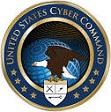USCYBERCOM begins using limited acquisition authority
 U.S. Cyber Command has begun executing its new “limited acquisition authority” to speed up the acquisitions process for cyber-specific tools, the command announced October 12.
U.S. Cyber Command has begun executing its new “limited acquisition authority” to speed up the acquisitions process for cyber-specific tools, the command announced October 12.
The command awarded its first contract under this new authority Sept. 29 for information technology-related research and technical information services to enhance future acquisition decisions.
The Fiscal Year 2016 National Defense Authorization Act granted Cybercom the authority to acquire, develop and sustain equipment and capability related to cyberspace operations, and to execute contract actions up to $75 million a year, through Sept. 30, 2021.
“Our office spent 2017 putting the right people, processes and policies in place,” said Tony Davis, who until recently served as the acting command acquisition executive. Davis returned to U.S. Special Operations Command in September after having led efforts to stand up this authority.
Typically, combatant commands and their subordinate units have to rely on the services – the Army, Air Force or Navy – or defense agencies to write and execute contracts and to acquire resources to accomplish their mission.
Davis said the new authority provides the command with greater agility and flexibility. It gives Cybercom and the United States “speed, flexibility and a technical knowledge base when providing capabilities for our cyberspace forces in a rapidly changing, worldwide domain,” he added.
Mike Zwiebel, who took over for Davis as the acting command acquisition executive in October, agreed.
“This is important because of the dynamic nature of this contested domain,” he explained. “The threat environment changes rapidly in cyber, and our ability to respond must be equally agile.”
Cyber Command isn’t limited to or interested in only buying tools — it’s also about finding the right people and support, Davis said.
“Instead of trying to provide basic details to a separate organization to draft and award contracts, we now have the visibility and capability to make those contracts as tailored as possible,” he said. “This makes us more agile by developing very technical, very cyber-specific personnel and support contracts.”
Source: US Cyber Command








